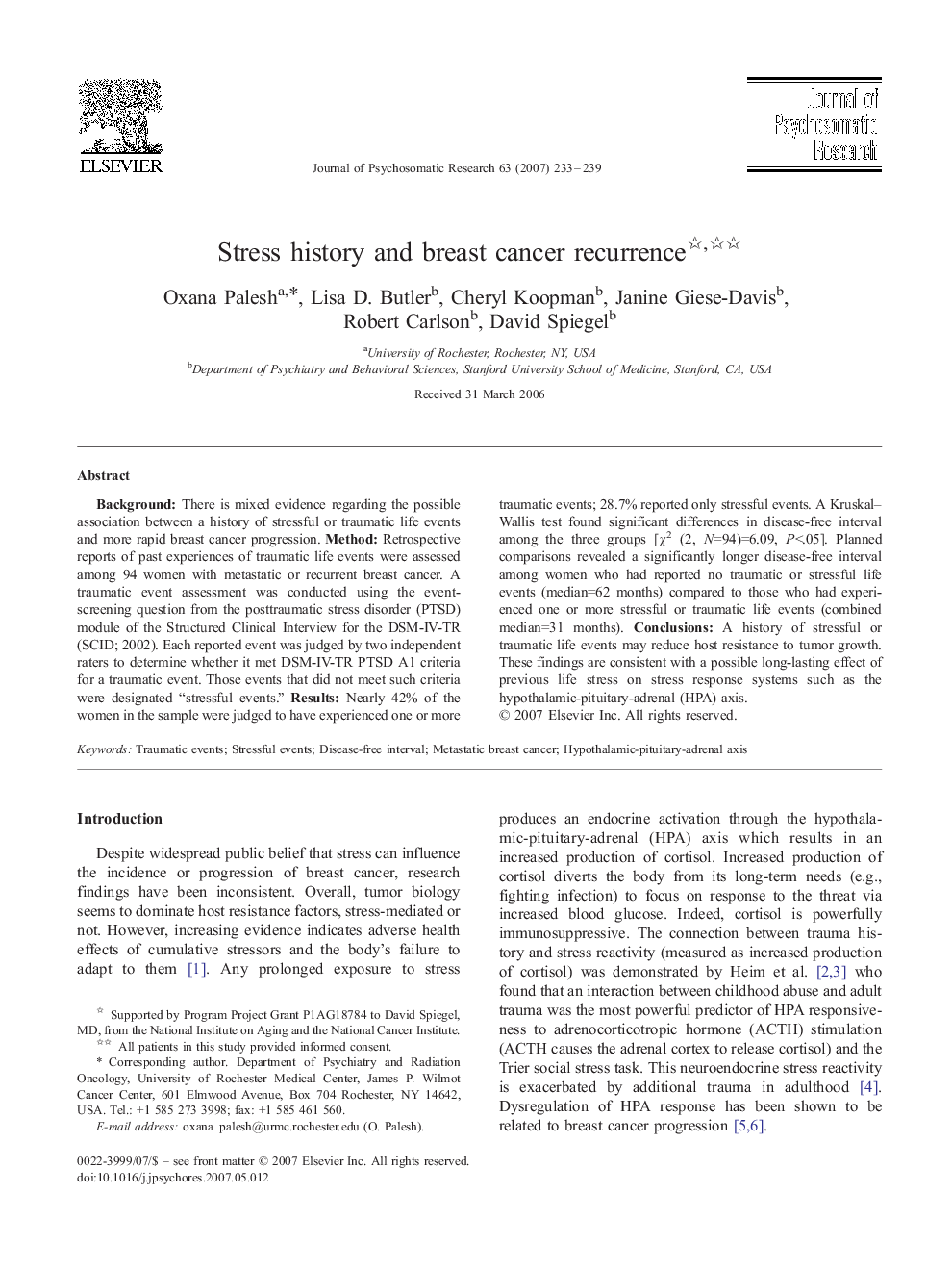| Article ID | Journal | Published Year | Pages | File Type |
|---|---|---|---|---|
| 950516 | Journal of Psychosomatic Research | 2007 | 7 Pages |
BackgroundThere is mixed evidence regarding the possible association between a history of stressful or traumatic life events and more rapid breast cancer progression.MethodRetrospective reports of past experiences of traumatic life events were assessed among 94 women with metastatic or recurrent breast cancer. A traumatic event assessment was conducted using the event-screening question from the posttraumatic stress disorder (PTSD) module of the Structured Clinical Interview for the DSM-IV-TR (SCID; 2002). Each reported event was judged by two independent raters to determine whether it met DSM-IV-TR PTSD A1 criteria for a traumatic event. Those events that did not meet such criteria were designated “stressful events.”ResultsNearly 42% of the women in the sample were judged to have experienced one or more traumatic events; 28.7% reported only stressful events. A Kruskal–Wallis test found significant differences in disease-free interval among the three groups [χ2 (2, N=94)=6.09, P<.05]. Planned comparisons revealed a significantly longer disease-free interval among women who had reported no traumatic or stressful life events (median=62 months) compared to those who had experienced one or more stressful or traumatic life events (combined median=31 months).ConclusionsA history of stressful or traumatic life events may reduce host resistance to tumor growth. These findings are consistent with a possible long-lasting effect of previous life stress on stress response systems such as the hypothalamic-pituitary-adrenal (HPA) axis.
